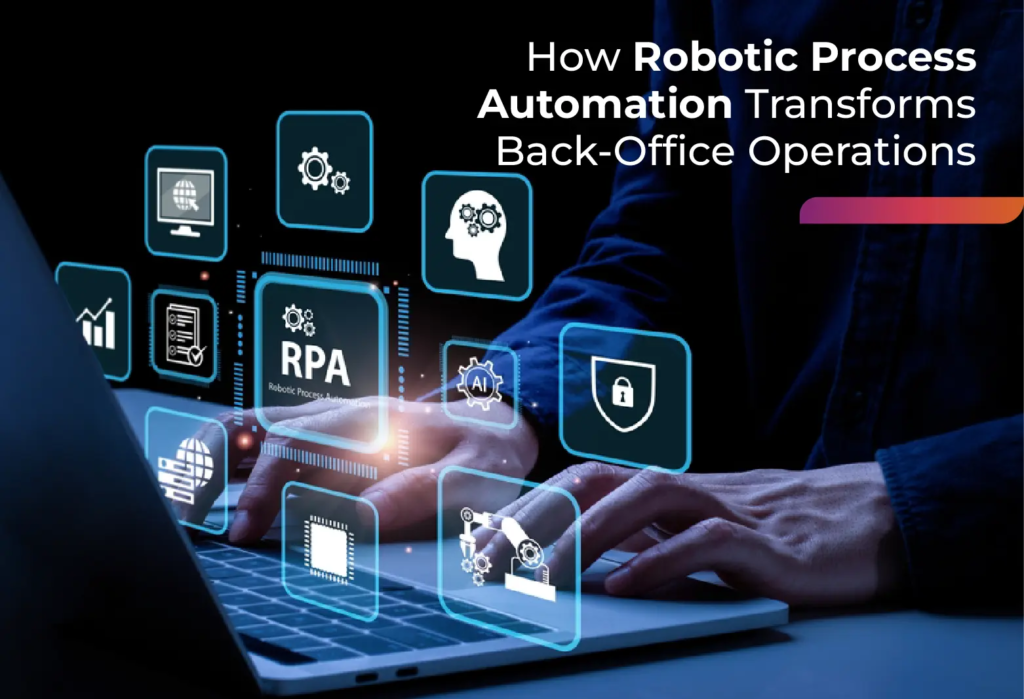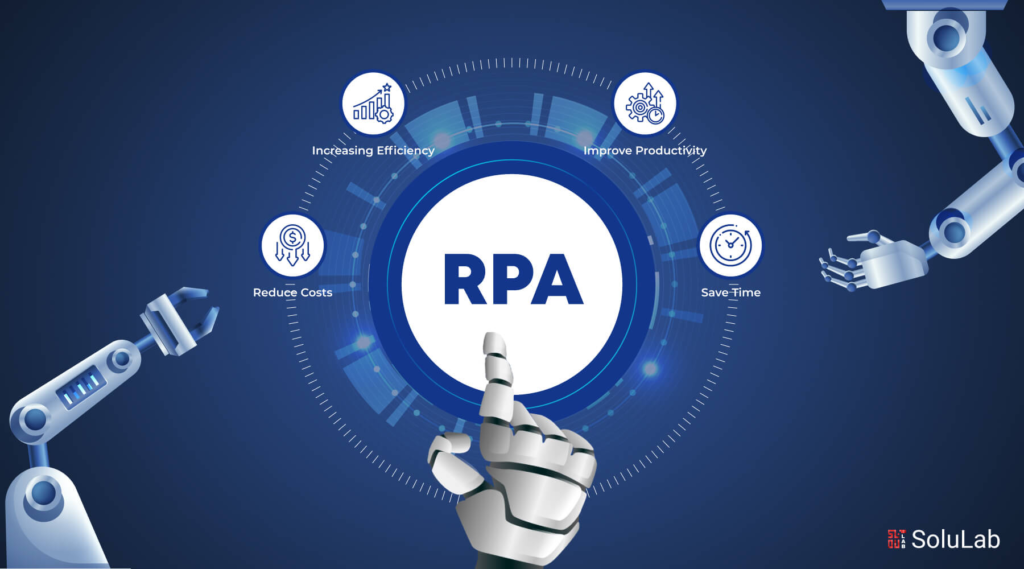Robotic Process Automation (RPA) refers to software robots that emulate repetitive human tasks, handling data entry, file transfers, invoice processing, report generation and more. In Oman, forward looking enterprises and government agencies are adopting RPA to modernise back office activities, boosting efficiency and redefining service delivery across sectors.
By automating routine workflows, organisations in Oman are realising faster turnaround times, fewer errors and amplified productivity. Teams can redirect their valuable time toward higher value tasks, creativity and real human interaction, enhancing the overall working experience and elevating business outcomes.
Why RPA Matters for Omans Back Office
In many Omani organisations, back office functions like HR, finance, procurement and customer support involve monotony and data duplication. Traditional manual approaches often result in delays, mistakes and employee burnout. RPA solves this by:
- Providing nonstop automation that functions beyond human hours
- Substantially reducing human error in repetitive tasks
- Delivering high accuracy and repeatability
- Reallocating staff to strategic, creative or human facing work
In Omans evolving economic landscape, especially under Oman Vision 2040, such operational excellence supports economic diversification, government service optimisation and private sector competitiveness.
Robotic :Actual Use Cases in Oman
Omani organisations are embracing RPA in many back office domains:
HR and Payroll
Processing payroll, managing on boarding documents, managing leave requests and benefits enrolment become seamless as bots handle routine tasks. Staff focus shifts to employee engagement, development programmes and culture building, rather than administrative burdens.
Finance and Accounts Payable
RPA enables the automatic handling of invoice scanning, extraction, validation and posting. The result: invoices processed faster, fewer payment delays, improved supplier relationships and tighter financial control.
Procurement and Purchase Orders
Bots extract purchase orders, validate against contracts, assign approvals and update ERP systems. This leads to reduced procurement cycle times, improved policy compliance and greater transparency throughout the supply chain.
Compliance and Reporting
Government agencies and financial institutions in Oman benefit from automating regulatory reporting, data aggregation and reconciliation. This ensures accuracy, consistency and on time compliance while freeing analysts to interpret results rather than compile them.
Customer Data and Support
When customer inquiries or changes come in such as address updates or request forms, RPA bots handle data entry, confirmation emails and record updates. This accelerates response speed, elevates service quality and enhances customer satisfaction.

Benefits of RPA for Organisations in Oman
Accelerated Speed and Better Accuracy
Bots process tasks in minutes or seconds, minimising cycle times and virtually eliminating manual errors. This reliability delivers timely, dependable operational results.
Cost Efficiency and ROI
Automation reduces the reliance on manual labour for repetitive tasks, enabling companies to scale and reallocate human talent toward value adding duties. Quick implementation cycles deliver strong returns on investment within months.
Enhanced Employee Engagement
With bots handling mundane work, employees feel empowered to engage in strategic initiatives, innovation and meaningful client interaction, leading to higher job satisfaction, retention and creativity.
Scalability and Flexibility
As business volumes change during seasonal demand or growth, bots can scale quickly. Organisations benefit from increased agility without needing extensive hiring or layoffs.
Improved Governance and Auditing
Every action a bot takes is logged and traceable. This level of auditability strengthens compliance, internal control and regulatory reporting, critical in public sector and finance sectors in Oman.
Humanising the Automation Journey
Introducing RPA is not just a systems update, it is a journey that impacts people. Successful implementations in Oman follow these human centric steps:
Engage Stakeholders Early
Consult employees and management up front to identify pain points, concerns and opportunities. Transparency builds trust and encourages collaboration.
Provide Learning and Reskilling
Offer training on how RPA works and what it means for roles. Empower staff to design, monitor and manage bots or get involved in process improvement and analytics.
Emphasise Partnership with Bots
Position RPA as collaboration, not replacement. Highlight how bots handle repetitive tasks while humans uplift value through judgement, empathy and creativity.
Celebrate Wins Publicly
Share success stories such as faster payroll, smoother procurement, better compliance within the organisation. Positive reinforcement boosts adoption and cultural acceptance.
Challenges and Practical Tips
While RPA brings many benefits, organisations in Oman must carefully plan for common challenges:
- Process Complexity: Bots thrive on structured, standardised workflows. Begin with simple, well defined tasks before tackling complex, cross system operations.
- Change Resistance: Employees may fear job loss or disruption. Tackle these concerns openly and position RPA as a supportive tool.
- Upfront Costs and Governance: Budget for licensing, infrastructure and skilled support. Define governance policies, performance monitoring and maintenance plans from the start.
- Integration with Legacy Systems: Bots can connect with older systems even without APIs, but ensuring stability and testing remains crucial.
Successful organisations in Oman start small with a few pilot projects, measure impact, refine governance around RPA and expand rollout gradually across departments.

Measuring Success in Oman
To assess RPA impact, Omani organisations should track key metrics:
- Time saved per process (hours or cycles reduced)
- Accuracy gains (reduction in errors or rework)
- ROI period (how soon cost savings offset investment)
- Employee engagement and satisfaction surveys
- Compliance and audit milestones completed on time
Regular reviews and open communication ensure that RPA delivers on promised value and supports continuous improvement.
Future Potential in Oman
As businesses and government evolve, RPA can expand into areas like:
- Cognitive Automation: Combining optical character recognition (OCR) and artificial intelligence to handle unstructured data like emails and PDFs.
- Intelligent Process Discovery: Automatically mapping workflows and recommending automation opportunities.
- Hyperautomation: Coordinating RPA with analytics, low code development and AI to orchestrate larger, end to end automation ecosystems.
These next generation tools can empower Oman to elevate operational excellence across sectors like education, healthcare, finance, logistics and government with bots handling more complex, variable tasks.
Why Oman Is Ready for RPA
Government Support and Vision
With Oman Vision 2040 emphasising operational efficiency, digital transformation and economic diversification, RPA aligns seamlessly with national goals. Several government agencies are already piloting automation to improve citizen services and administrative efficiency.
Budding Tech Ecosystem
Local tech consultancies and partner firms are developing RPA expertise, offering consulting, deployment and support services to private and public sector clients alike.
Skilled Workforce and Institutions
Oman has grown its talent pool in IT, engineering and business process management. Universities and training centres are offering specialised programmes in digital operations, equipping graduates for automation roles.
Conclusion A Human Centred Automation Transformation
RPA offers a powerful mechanism for streamlining back office operations in Oman. Beyond time savings and accuracy gains, it delivers cost efficiency, employee empowerment and strategic alignment with national vision.
By placing people at the centre, engaging them early, res killing for higher value roles and highlighting automation as collaboration rather than replacement, organisations can create a thriving, humanised automation culture.
As technology evolves, Omans organisations who embrace RPA responsibly will emerge stronger, more agile and ready to compete in the future.
Do follow Gulf Magazine on Instagram.
Also Read – AI Driven Chatbots Transforming Customer Service in Oman Telecom Industry



